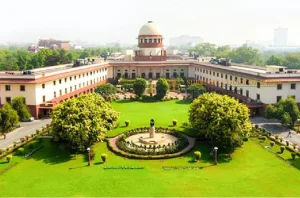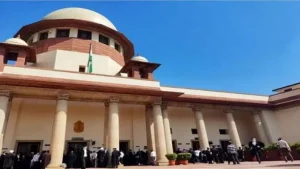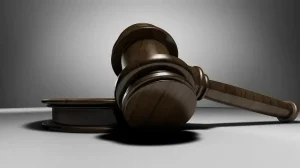

Cases Under the Legal Metrology Act and the Proposal to Decriminalise Offences
- /
- Articles and Blogposts /
- Cases Under the Legal Metrology Act and the Proposal to Decriminalise Offences
The time is ripe to re-imagine and provide relief to the bane of most manufacturing companies — reform to the Legal Metrology Act, 2009. The Department of Consumer Affairs (Ministry of Consumer Affairs, Food and Public Distribution, Government of India) had recently sought feedback regarding a proposal to decriminalise minor offences under the Legal Metrology Act, 2009 (‘LMA’) so as to improve the ease of doing business and unclog courts.
The offences sought to be decriminalised are those unlikely to have mens rea (a malafide intent) and where larger public interest is not adversely affected. It has been proposed that in order to effectively deter any offenders, criminal liability be substituted with stiff compoundable monetary penalties of a civil nature, coupled with cancellation of licences in case the offence has not been compounded with the department. The proposal also highlighted the need to think of feasible alternative mechanisms to resolve these disputes for speedy and effective enforcement.
The LMA is the law which prescribes and enforces the standards for weights and measures, as well as regulates trade and commerce in weights and measures. As things stand, a contravention of provisions of the LMA makes a person liable to pay a fine, undergo imprisonment, or both. In the case of companies, a contravention of the provisions of the LMA can make the directors of a company criminally liable for the offence. The move to decriminalise offences under the LMA is welcomed by members of the business fraternity as it will give comfort to those in positions of leadership in companies as well increase the interest of expats who seek to be directors of Indian companies.
In considering whether offences under the LMA should be decriminalised and replaced with civil penalties or cancellation of licences, as well as to understand the current delays in court procedures, it is important to analyse the outcomes and progress of such cases in court. A sample set of 1,478 LMA cases in Maharashtra were analysed from the DAKSH database to understand how such cases progress in court. A look at 713 pending cases showed that such cases are pending for an average of 3.2 years, while an analysis of 765 disposed LMA cases show that the cases took an average of 1.7 years to be disposed. This broad analysis of the data indicates that the kind of cases that were disposed went through the judicial process much faster than those that are caught in the web of pending cases.
In order to understand why that may be so, an attempt was made to analyse the orders/judgments passed in the 765 disposed cases. As orders/judgements for most cases were not available on the eCourts website, information was analysed from 135 disposed cases for which they have been uploaded. Interestingly, there are two broad groups into which all the judgements can be classified — in 72 per cent of the cases, the accused agreed to pay a fine, and in 28 per cent of the cases, the case was dismissed due to non-prosecution. The timeline for disposal for these two categories varies vastly; the cases where the accused paid the fine went through seven hearings on average and were disposed in an average of one year, whereas the cases dismissed due to non-prosecution went through an average of 15 hearings and took 3.5 years on average before the court dismissed the case for non-prosecution.
A closer look at the cases also showed that the courts went through the facts and merits of each case in only 28 per cent of the cases wherein the accused had pleaded guilty to the charge and was sentenced to pay a fine or imprisonment in case they defaulted in paying the fine. In all other cases (barring those dismissed for non-prosecution), the complainant either withdrew the case as they received payment, or had reached a
settlement to compound the offence. It was also interesting to note that the accused had not challenged the charges levelled on them in any of these judgments, which begs the question of whether there is a need for these disputes to require the application of judicial mind. If the reason for mandating such cases to go through the judiciary is to be able to sentence the offender to imprisonment, a reading of these judgments show that where the accused has pleaded guilty, the court has imposed a fine on the offender and sentenced them to imprisonment only if they default in paying the fine.
Therefore, the move to decriminalise these offences may be a step in the right direction for the following reasons — first, imprisonment rarely occurs for these offences; secondly, if the reason for such criminalisation was merely to provide an incentive to ensure compliance with law, strictly enforced civil penalties and the possible cancellation of a licence are likely to have the same effect in ensuring adherence to law; third, as 28 per cent of the cases were dismissed due to non-prosecution, it is unlikely that criminalisation is incentive enough to ensure compliance if the legal metrology office is unable to pursue all the litigation in a timely manner; and lastly, if the offender most often pleads guilty or agrees to pay a fine or settle the dispute, there is no need for every such dispute to require the application of a judicial mind, and most of them can be settled through alternate means.
With regard to the alternate means of resolving LMA disputes, it is proposed that a system akin to the Virtual Court for Traffic Challans be extended to disputes under the LMA. The suggested method for such a system is that if on inspection of any weight, measure, or other goods, a legal metrology officer (‘LMO’) finds a contravention of the LMA Act, he may first ask such person to show cause for such contravention. If the LMO does not hear a response or if the fine is not compounded or no appeal has been fined, the LMO may then register a complaint through the virtual court specifying the fine to be levied and the virtual court can fix the deadline within which such fine must be paid. In the event that someone challenges the complaint, the file may then move to a judge’s docket in the appropriate jurisdiction. Assuming the behaviour of litigants with respect to virtual courts being the same as regular physical courts, it is likely that most of them will pay the fines at this stage. However, if there has been a non-payment of the fine by the deadline, the judge may then direct the state or central government to take appropriate action towards cancellation of the offender’s licence. Such a system will provide several benefits, including eliminating procedural delays faced in regular physical courts, reducing the number of cases that appear before judges, expediting the process of settling the dispute, as well as ensuring transparency before the cancellation of any licences. While the move to decriminalise these offences may improve the ease of doing business, it is also an opportunity to improve existing processes to ensure greater transparency and access to speedy dispute resolution.
The views expressed in this article are solely those of the author’s and they do not represent the views of DAKSH.

Shruthi Naik
RECENT ARTICLES


Lessons for Judiciary from Space Sector

The missing piece in India’s reform story—a strong tribunal system

Fast-track courts may not be the cure

-
Rule of Law ProjectRule of Law Project
-
Access to Justice SurveyAccess to Justice Survey
-
BlogBlog
-
Contact UsContact Us
-
Statistics and ReportsStatistics and Reports
© 2021 DAKSH India. All rights reserved
Powered by Oy Media Solutions
Designed by GGWP Design